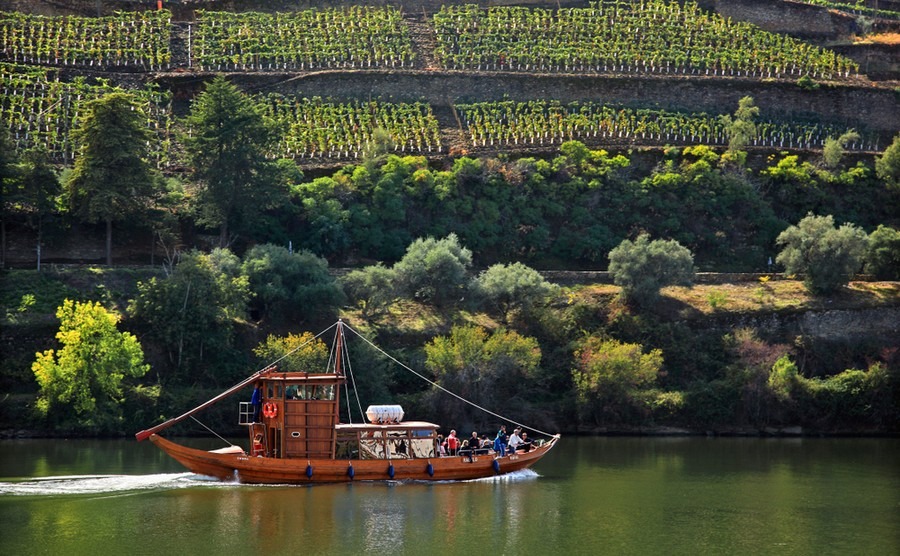Would you like to start a tourism business in Portugal, and live in the sun whilst earning from your endeavours? You have at least until the end of the transition period to do so simply. Here’s how…
Many people dream of a life in Portugal’s seemingly-endless sun, and there’s no need to wait until retirement. Whether you need to make a living as part of your plan, or simply want to establish a side income, one great option is to start a tourism business in Portugal.
The climate is friendly in every sense. Of course, we partly mean the weather! Portugal boasts more sunny days than anywhere else in Europe. But there’s also a very favourable business climate for those thinking of starting local enterprises. Portugal’s government does much to attract investment, and there are schemes that can make a real difference to your profitability, and your standard of living.
There’s more on those below. First, let’s look at the things you need to think about before getting started.
Learn about your options for paying for a Portuguese property in your Portugal Finance Guide.

Cruises down the Duoro? (Heracles Kritikos / Shutterstock.com)
Planning and researching
Your mind may instantly jump to ocean and sand when you think of Portugal. However, a coastal tourism business is only one of several options.
Rural tourism is increasingly popular, and very successful in Portugal. Alternatively, you could base yourself in a city. (Note that if your planned business involves renting out accommodation, there are now some Airbnb restrictions in Lisbon and Porto).
A good way to start gathering initial inspiration is to look what’s already out there, and also to think hard about what you’d really enjoy doing. Wine tours? Pilates retreats? Kayak excursions around deserted islands? Those are all things that expats have successfully implemented.
Obviously we’re talking here about running a business, but there’s nothing to say it can’t be something that is based around your passions.
Find homes for sale in Portugal on our property portal.
Thinking about areas and transport links
Portugal is a place of diverse landscapes and plenty of different styles of living. There’s nothing to stop you buying an isolated ruin and starting a silent yoga retreat (subject to the relevant licenses and permissions, of course!)
However, if you want to attract customers, it’s essential to think about how they’re going to get to you. Portugal has three main airports: Lisbon, Porto and Faro. It’s wise to consider distance from these, and the simplicity of getting to and fro, both by car and public transport.
Some people are willing to trek across the country to a hidden-away place. However, you risk restricting your potential audience if you make it too hard for weekenders and casual travellers to get to you.

Hospitality is a great business to be in, in Portugal
Learn about the seasonal trends
Similarly, seasonal trends are something to learn about before you commit to anything. Some places in Portugal, especially coastal resort towns, have very clear season and off-season periods. The Portuguese tourist board has proved adept at attracting visitors all year round. However it’s fair to say that some places are better suited to year-round tourism than others.
Take the Algarve, as an an example. Some resorts, such as Manta Rota and Altura, feel almost “closed” when the summer is over. Lagos and Tavira, meanwhile, have more than enough going on to support a tourism business for a much longer season.
We can put you in touch with an Independent Financial Advisor, who can help you with all budgetary aspects of managing your finances in Portugal. Simply fill in our enquiry form and we will back with free recommendations for you.
Consider licenses and red tape
Things are improving steadily, but bureaucracy is alive and well in Portugal. It can be frustrating and time consuming. Obviously exactly what you’ll need in the way of licenses and paperwork will vary dependent on the business you’re getting into.
Your alojamento local(s) will be most important step if you plan to rent out accommodation. These rental licenses take time and effort to obtain. Enforcement is proactive and strict. You can expect to have much more to think about if you’re serving food or hosting sporting activities.
The best approach is to expect things to take your time, keep smiling, and do your best to use as much Portuguese as possible. There’s a considerable respect for authority in Portugal, and officials don’t like to be rushed!
Find the right professional advice
Working with trusted lawyers and estate agents will help your tremendously with starting your tourism business in Portugal.
First off, you will be able to turn to these people for advice. They may well also be able to help you negotiate some of the red tape. It’s undeniable that knowing the right people can make a huge difference in Portugal. This is especially the case in small towns and communities. Seek out trusted recommendations and partner with the right professionals.
Tax and residency schemes
If you’re thinking of starting a tourism business in Portugal, it’s wise to learn the details of the country’s two main initiatives aimed at new overseas residents:
The golden visa scheme
Discussed in this article, the Golden Visa is aimed at “third-country” (i.e. non-EU) citizens. It allows a very easy route to full residency for those willing to invest in the country, in property or in a business.
The usual minimum investment is €500,000 – either in a residential property or in a small or medium business. However, there is a lower threshold of €350,000 for “urban regeneration” areas. This could offer some possibilities for city-based tourism businesses. There is, however, talk of ending it for Lisbon, Porto and coastal areas, without further specification yet.
It’s worth noting that after the 2020 Brexit transition period, UK citizens will qualify as “third country” nationals.
The non-habitual residency tax scheme
This hugely popular tax incentive allows new residents from overseas to enjoy a host of tax benefits. These include paying little or no tax on overseas income. There’ also a flat income tax rate of 20% for Portuguese income.
The scheme is open to those who’ve not lived in Portugal in the previous five years. The advantages last for ten years. It’s well worth looking into whether you qualify, as this can make a huge difference to your real-life income.
Run the numbers
All of the steps above take you closer to the point where you can sit down and produce a business plan.
Competitor research will give you an idea of what to charge; Understanding seasonal trends will help you estimate business and occupancy levels; Knowing about local taxation will inform you as to how much money you actually get to keep!
Once you’ve gathered all that data, you can “run the numbers” and see if your tourism business in Portugal is viable.
Clearly, a business that’s intended as a “side gig” is a much less scary and risky proposition. However, it’s still important to know that the sums add up. If your business income will pay for your living expenses, it’s far more critical to do this is enormous detail. You should ensure that even your less optimistic projections still allow you to live your life and meet your commitments.
Take action – but allow plenty of time!
Once all the above is done, it’s time to take action! As stated above, it’s wise to be aware that the wheels can turn quite slowly in Portugal. As such, don’t assume that you’ll be able launch ready for an imminent season if you’re waiting on licenses and paperwork!
Once you’re ready to start looking at locations for your tourism business in Portugal, have a look at this advice on arranging a viewing trip.












